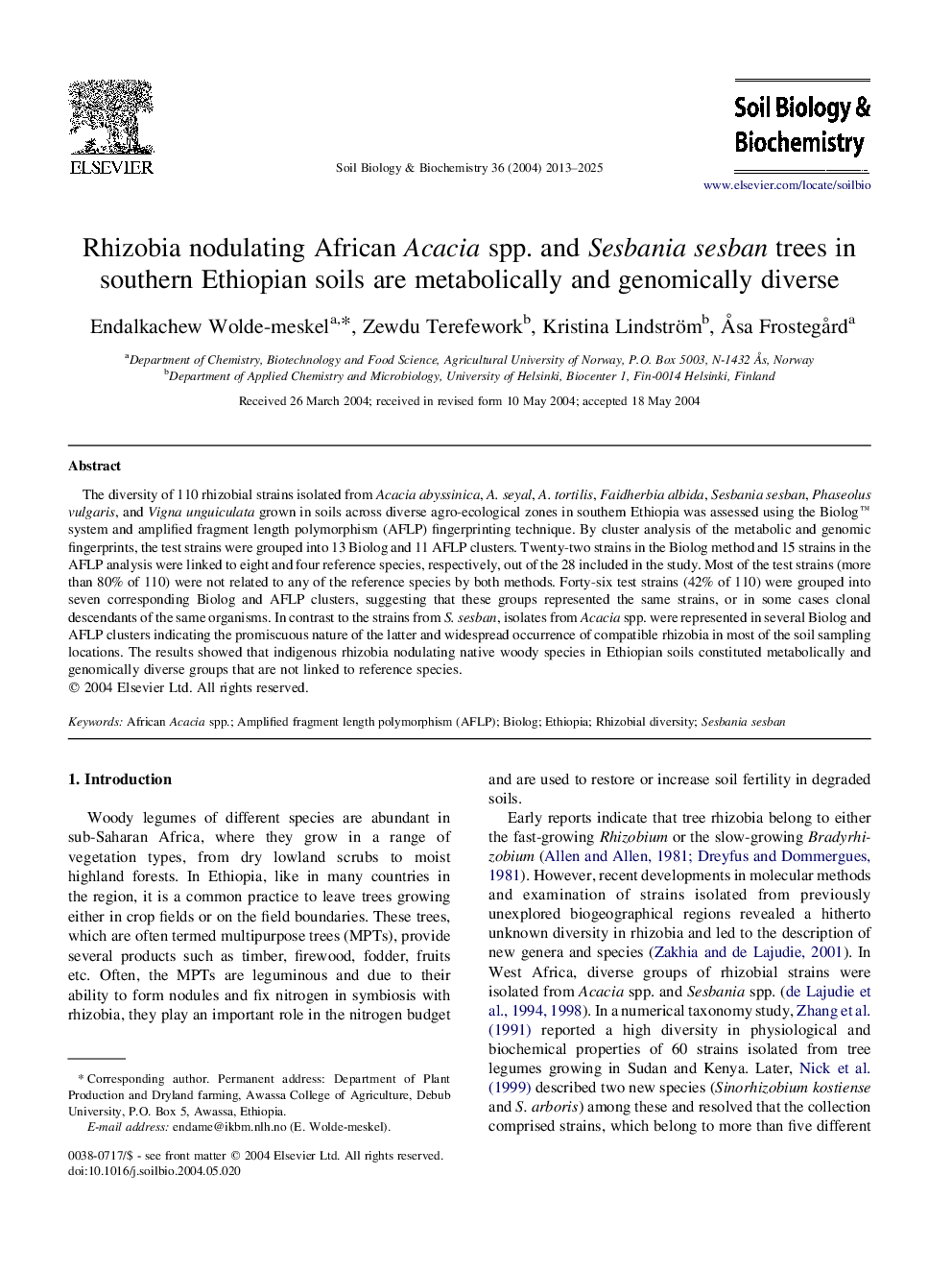| Article ID | Journal | Published Year | Pages | File Type |
|---|---|---|---|---|
| 2027280 | Soil Biology and Biochemistry | 2013 | 13 Pages |
The diversity of 110 rhizobial strains isolated from Acacia abyssinica, A. seyal, A. tortilis, Faidherbia albida, Sesbania sesban, Phaseolus vulgaris, and Vigna unguiculata grown in soils across diverse agro-ecological zones in southern Ethiopia was assessed using the Biolog™ system and amplified fragment length polymorphism (AFLP) fingerprinting technique. By cluster analysis of the metabolic and genomic fingerprints, the test strains were grouped into 13 Biolog and 11 AFLP clusters. Twenty-two strains in the Biolog method and 15 strains in the AFLP analysis were linked to eight and four reference species, respectively, out of the 28 included in the study. Most of the test strains (more than 80% of 110) were not related to any of the reference species by both methods. Forty-six test strains (42% of 110) were grouped into seven corresponding Biolog and AFLP clusters, suggesting that these groups represented the same strains, or in some cases clonal descendants of the same organisms. In contrast to the strains from S. sesban, isolates from Acacia spp. were represented in several Biolog and AFLP clusters indicating the promiscuous nature of the latter and widespread occurrence of compatible rhizobia in most of the soil sampling locations. The results showed that indigenous rhizobia nodulating native woody species in Ethiopian soils constituted metabolically and genomically diverse groups that are not linked to reference species.
